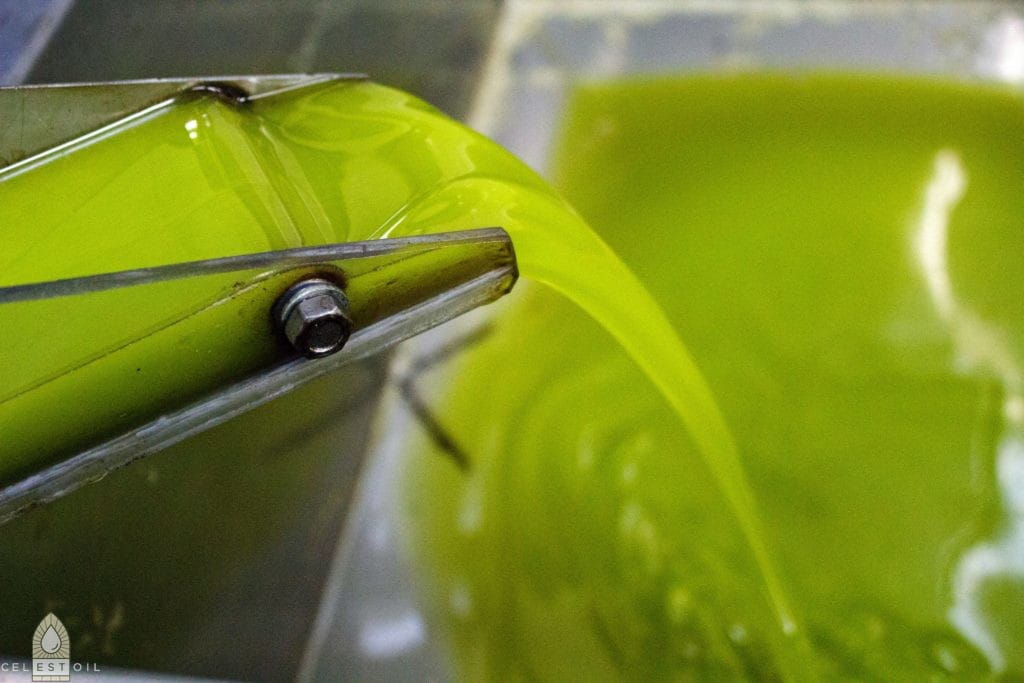Which qualities olive oil are available?
Which qualities olive oil are available?
All olive oil is made from the fruits that grow on olive trees, but there are different qualities of olive oil. The method used to extract the oil from the olives determines the quality.
The following qualities can be distinguished from highest to lowest quality:
- Extra virgin olive oil
- Virgin olive oil
- Refined oil
- Olio di oliva
- Pomace oil
Extra virgin olive oil
The highest echelon within the different qualities of olive oil. This oil is from the first pressing (without heating) with mechanical presses. This results in the highest quality oil, because no chemical process is involved. The acidity of extra virgin olive oil should not exceed 0.8 percent. In the realm of really good olive oil, the bar is set even higher and the target is to stay even below 0.5 percent. The result is an olive oil with a rich taste and an oil where all natural vitamins and minerals have been preserved. Such oil is very suitable to use in a salad or cold appetizer, using this oil in pasta or in a sauce are also great examples. This oil is the flagship of all olive oil.

Virgin olive oil
The second quality in olive oil is the vierge olive oil. The acidity of virgin olive oil should not exceed 2 percent. The goal is to keep the taste, color and aroma as authentic as possible. The olives are a bit riper or of lower quality when pressed and therefore a bit more acidic. This olive oil is well suited for vinaigrettes and for baking. This oil is often also significantly lower priced. The difference in taste and aroma between virgin and extra virgin is very clear.
Refined oil
Refined oil is a mixture of different qualities and sometimes even different types of oil. This product is of much less quality and is therefore a lot cheaper. During refining, impurities are removed from the oil, but this is at the expense of the taste, smell and aroma. Refined oil is often mixed with virgin olive oil to add some flavor and aroma to the final product.
In addition, other types of oil are often added, such as sunflower oil or soybean oil. This is done to lower the production price per liter. Olive oil may be "diluted" with other types of oil up to an acidity of 2.5%. The entire production process often involves multiple industrial operations and is miles away from the attention and passion that goes into making extra virgin olive oil. Enthusiasts tend to keep this oil out of their kitchens.
Olio di oliva
The term cold pressing indicates that hot pressing also is a production porces. With olio di oliva, the pulp that remains after the cold pressing is heated to extract even more oil. All healthy substances have disappeared and the smell and aroma are gone. This oil is only suitable for baking or deep-frying. This oil is also often mixed with other oils, as is the case with the refined oils. In our view, this oil does not deserve the title "olive oil".
Pomace oil
If you thought that olio di oliva isnt a great product, there is even a worse quality known by the name olio di sansa (in English this is known as pomace oil). After multiple times of hot and cold pressing, a pulp remains that still contains a few percent oil. This oil can no longer be extracted by pressing. By using chemical processes and solvents, the last remaining oil can still be extracted. The oil still has to be refined because otherwise the product is not yet suitable for consumption, that says enough. With the name olio di sansa di oliva this may be on the shelves in a store near you, but you really don't want to buy this. This product tastes downright nasty and all the healthiness of olive oil has completely disappeared.
Celest Oil only sells with premium extra virgin olive oil, go to the webshop for our products.
Feedback
If you have bought one of our products or have made recipes, we would of course be very happy to hear your reaction under the product or recipe. We would like it even more if you would share this on social media and tag us in the process.
Keywords:
extra virgin olive oil - qualities in olive oil - virgin olive oil - refined oil - olio di oliva - olio di sansa - pomace oil
